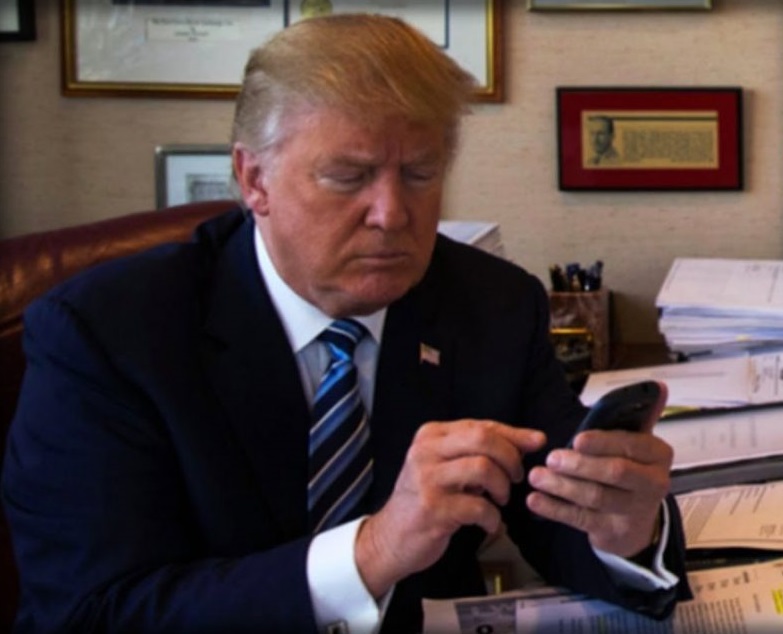
You have to give Donald Trump credit for superb public relations. No matter what he does or says or what is going on anywhere in the world, he manages to remain a constant center of attention in the United States and throughout the rest of the world. People may love him or hate him, attack him or defend him, but they talk about him incessantly.
There is a joke circulating about him. An anti-Trump voter reminds us that Trump said during the electoral contest that if voters elected Hillary Clinton, they would find the United States governed by a president fighting constant criminal charges from Day One. The voter continues: Trump was right. I voted for Hillary and I find the United States governed by a president fighting constant criminal charges from Day One.
Most anti-Trump activists are very fearful that Trump’s public relations skills mean that he will be able to deflect these charges successfully. Donald Trump himself seems to be less sure. He appears to fear that the charges might stick and force him from office.
This is the heart of the issue concerning the Special Counsel. Utilizing a law passed after the Nixon resignation from office, the Deputy Attorney General appointed a so-called Special Counsel whose duty it is to investigate whether or not various members of the Trump administration, and possibly Trump himself, have violated the criminal code in any way.
No one knows what the Special Counsel will eventually find. He may absolve everyone. He may charge some associates of Trump but absolve Trump. He may incriminate Trump. The whole process could take a long time, quite possibly a year or so.
Trump is obviously nervous. There are now rumors that he may decide to do something that is within his legal powers – fire the Special Counsel. The situation is analogous to that encountered by Richard Nixon in 1973, analogous but not identical.
Nixon sought to fire the person investigating the so-called Watergate break-in. He ordered first the Attorney General and then the Deputy Attorney General to fire him. They refused and resigned. He finally got the accord of the third in line in the Department of Justice, the Solicitor General, to do it.
The whole set of events is called now the Saturday Night Massacre. Most analysts attribute Nixon’s downfall a year later to Nixon’s actions at this moment, which was the point at which he significantly undermined public and Congressional support.
The dilemma for Donald Trump is whether to fire the Special Counsel now or to risk an unhappy set of charges somewhat later on. This is a classic lose-lose situation. Whichever of the alternative processes Trump decides to pursue, he loses. There is no way he can resolve the dilemma.
The basic reason is that he has been unable to deliver on the electoral promises of changes he said he would achieve immediately on assuming office. His poll levels of approval and support have dipped steadily. As a result, he is no longer either revered or feared. Rather, he is ignored.
Does Trump know this? He is notoriously smart but also notoriously hotheaded. His gut no doubt tells him to fire the Special Counsel now before things get worse. He shrugs his shoulders when he is told that many people may resign from his government. He has shown little loyalty to his associates all the while that he demands 100% loyalty from them. I suspect most persons presently serving him in high posts count the days that they will remain in these posts.
The internal discussions of the Trump administration are practically an open book. The leakage is massive. It seems that most advisors are saying to him (in muted tones) that he should remain cool and not do anything, including not tweeting about it. It also seems he is impervious to this advice, and actually probably resents getting it.
My guess is that he will find himself one day so angry about the charges that he will explode and fire the Special Counsel. But he has surprised us before and he may do so again.
The basic thing the rest of us have to remember about this is that, for Trump personally, this is a lose-lose situation. How the Republican Party will act to avoid being dragged down by Trump is another question. It is definitely too early to know yet. The leaders of the Party do not know themselves.
Finally, for the rest of us, we should beware of cheering too readily about Trump’s dilemma. Trump is awful. Pence could be worse.
Immanuel Wallerstein, Senior Research Scholar at Yale University, is the author of The Decline of American Power: The U.S. in a Chaotic World (New Press).
